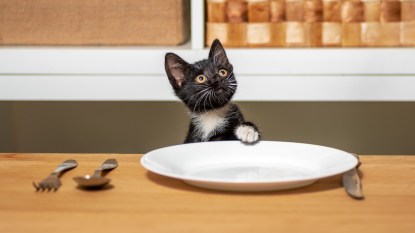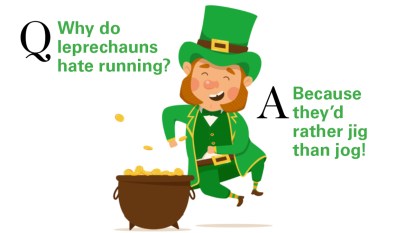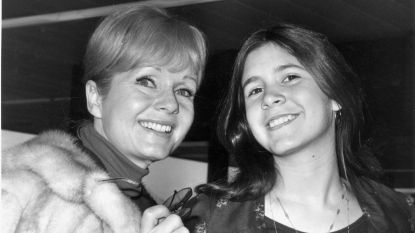‘Social’ Infertility: Dealing With the Pain of Wanting Kids But Never Getting the Chance to Try

I have a recurring dream that I’ve flunked out of college, having obliviously missed an entire course. It’s graduation day and my friends are tossing their hats and drinking champagne, but I’m looking on, panicked, shouting, “Wait! What? No one told me about the Thursday lectures and the 10,000-word dissertation. How has this happened?”
It’s a fitting metaphor for my status as socially infertile. “Social” or “circumstantial” infertility is a relatively new term, coined to describe women who, due to no medical reason, have not had children. Yet, despite the fact that many women are childless into their early 40s, society still seems woefully ill-equipped to know how to talk to — or about — these women.
Ironically, having recently been diagnosed with endometriosis at the age of 37, I may now qualify as medically infertile, as it affects one in three women’s chances of conceiving. When I asked my gynecologist if he thought it would affect me, he perkily stated, “The best way of finding out is to get on and try!” Noticing the silent tears pricking my eyeballs, he said, “This seems to have upset you?” I quietly replied, “I’ve been trying to find someone to try with for some time now.”
This article is not designed to be a pity party. I know that nothing is guaranteed in life, that everyone has their own cross to bear, and that comparing oneself to others is futile. I also know how lucky I am, as I have lots of children in my life, all of whom I adore.
However, having spoken to many friends and colleagues in their late 30s/early 40s, all single and childless not by choice, there seems to be a collective grief we silently shoulder. These feelings are particularly difficult to articulate — occurring, as they so often do, in a muddled response to friends’ and loved ones’ own reproductive circumstances.
So we remain silent, fake grins plastered on our faces, terrified of appearing self-pitying, selfish, jealous, insensitive, or worst of all, bitter. But the despair, helplessness, panic, and fear, fueled by biology and potent hormones, is real. And, if left untended, it can consume you.
It’s a common problem tackled by all the greats from Bridget Jones to Bridesmaids: the single girl hearing the news of her best friend’s engagement/pregnancy and dissolving into a hot mess of despair. I’ve been there. Recently, I was present when two of my best friends discovered that each one was pregnant. Instead of expressing how thrilled I was, I bolted from the room fighting back tears. It was a clumsy situation, but I desperately didn’t want my own feelings to overshadow their happy news. But they did, and I hate that.
These uncomfortable feelings have also ambushed me when supporting loved ones through fertility treatment. One of my friends nearly died losing a baby on round three of IVF, so I know how physically and emotionally scarring it can be. But what has inspired me — and inspired envy in me — is how it made the couples stronger. As my 37-year-old friend Sarah admits, “I’ve seen some of my friends struggling with miscarriages and IVF, and obviously I feel desperately sad for them. But knowing that I’ve never even had the chance to try and conceive is so difficult and painful. Sometimes, as mad as it sounds, I envy their fertility treatment because it seems so far down the road from where I am.”
As my friend Rachel, 44, says, “I’ve sat for years with friends who have struggled with fertility, with failed IVF, with their fears of never becoming parents, and seen how much support and sympathy they receive. And yet here I am, facing a future without children — the very future they dreaded and eventually avoided. But no one asks me how that feels. Instead, most people say, ‘Well, if you want a child, just go and have one,’ which is so shockingly simplistic.” It’s true. So often we find ourselves being suggested this alternative, as if it’s like booking a holiday. For me, right now, this route would be financially and emotionally irresponsible. Fertility treatment is expensive (one round of IVF costs approximately $5,000 or more).
It hasn’t helped that, as my 30s have whizzed by, so too has the booming business of motherhood exploded. Baby showers, baby moons, baby bloggers — it’s deafening. Actual uniforms have emerged — friends whose club I so desperately want to join now sporting jumpers and jewelery with “mama” emblazoned all over them, all talking a language I can’t speak. But again, I am aware that vocalizing this can make me seem bitter and jealous.
So what’s the answer? Online dating and egg freezing? I’d argue it’s more compassion, kindness, and consideration. It’s fear that drives us all to remain silent about this uniquely modern situation. Fear from those with children feeling desperate for those who don’t, and fear from those who don’t that they may never.
Last week, I met an elegant Parisian lady. She was 68. She asked me about my life, so I immediately launched into how I’m traveling and writing, as I don’t (yet!) have my own family. I inquired if she had children. “No,” she replied with genuine serenity. “It just didn’t happen. Bad boyfriends, bad luck. But, like you, I have my freedom.” If it doesn’t happen for me, I aim to find the peace that this fabulous lady has. But in the meantime, as I continue to hope, I would like for my desires and despair — and those of all my childless peers — to be acknowledged, not sidelined.
This article was originally written by Emily Maddick. For more, check out our sister site, Grazia.
More From FIRST
Your Internal Clock Feeling Out of Sync Could Be Your Body Alerting You to Serious Issues
Starting Over: 11 Lessons From Women Who’ve Switched Careers in Mid-Life
I Stopped Cooking Dinner for My Family — And I’m a Much Better Mother Now













